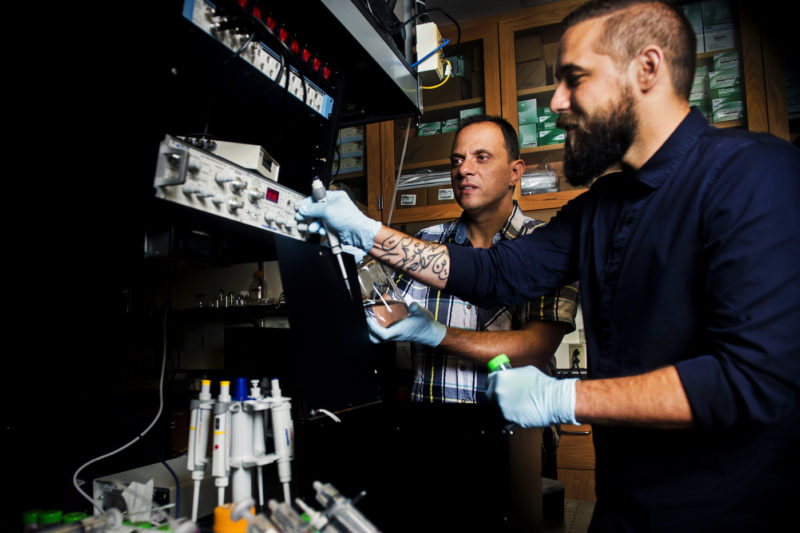US researchers are using carbon nanotubes as a filter to desalinate water, a technique which could prove easier, faster and cheaper than other desalination processes.
The researchers explain that filtering water is tricky because water molecules want to stick together. The hydrogen bonds are strong, requiring a lot of energy to separate. Water tends to bulk up and resist being filtered.
A carbon nanotube of 0.8 nm in size only allows one water molecule to pass through at a time. This disrupts the hydrogen bonds, so water can be pushed through the tubes at an accelerated pace, with no bulking.
“You can imagine if you’re a group of people trying to run through the hallway holding hands, it’s going to be a lot slower than running through the hallway single-file,” says Meni Wanunu, associate professor of physics at Northeastern University, Boston, Massachusetts.
Wanunu and post doctoral student Robert Henley collaborated with scientists at the Lawrence Livermore National Laboratory in California to conduct the research, which has recently been published in Science.
As well as being precisely the right size for passing single water molecules, carbon nanotubes have a negative electric charge. This causes them to reject anything with the same charge, such as the negative ions in salt and other unwanted particles.
“While salt has a hard time passing through because of the charge, water is a neutral molecule and passes through easily,” Wanunu reports.
The researchers claim that carbon nanotubes are better at desalinisation than any other existing method – natural or man-made.
The two labs have partnered with a leading water purification organisation based in Israel. And the group was recently awarded a National Science Foundation/Binational Science Foundation grant to conduct further studies and develop water filtration platforms based on their new method.





